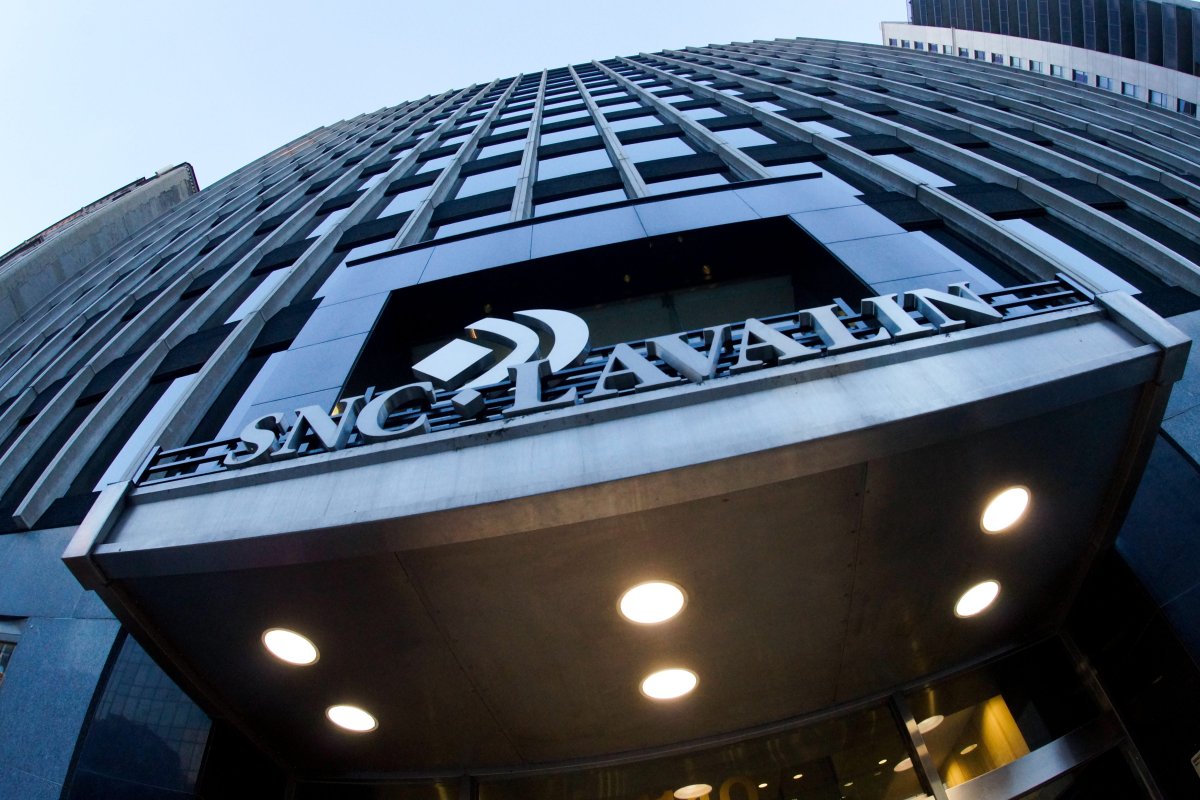MONTREAL – SNC-Lavalin is working hard to become an ethical benchmark for its industry by correcting the problems that have damaged the engineering company’s reputation over the past 18 months, its chief compliance officer said Monday.

“We are well on our way and my perception is that our people, our employees, our executives completely understand what is required,” Andreas Pohlmann said after addressing a fraud conference in Montreal.
The former head of compliance at Siemens said the process is never ending, but that SNC-Lavalin is progressing well in addressing its “compliance crisis” that tagged the company with accusation of bribery and corruption.
Pohlmann has implemented a number of changes to reshape SNC’s ethical culture since joining the firm last March. These included a code of ethics and business conduct, an anti-corruption manual, a whistleblower hotline, ending payments to middlemen and implementing a 90-day amnesty program.
Initial efforts launched in 2012 have accelerated this year and should allow SNC-Lavalin (TSX:SNC) to become a benchmark company for the engineering and construction industry in terms of ethics and compliance by early 2014, he said.
SNC’s strategy is to develop one global compliance policy that is communicated to employees around the world. Personal training has also been provided in more than 40 countries in high-risk regions to arm employees with the tools to do business cleanly.
Pohlmann said it’s naive to think that the ethical pressures are the same in North America as they are in difficult regions in Latin and South America, North Africa and Eastern Europe.
“It’s our objective at SNC-Lavalin to help our employees to develop their own compass in terms of ethics and compliance,” he told the Association of Certified Fraud Examiners.
He said the challenge is ensure that employees can respond positively to four questions: is what they are doing right for the company, is it consistent with the company’s core values, is it both legal and ethical and, most importantly, are they willing to be held accountable for their actions.
Pohlmann said the “tone from the top,” including the board, CEO and senior executives is key to convincing employees to buy into the culture change because the company can’t afford more ethical breeches. He said chief executive Robert Card has insisted that the engineering firm is only interested in obtaining clean business.
But he wouldn’t say if SNC-Lavalin’s past problems stemmed from the actions of a few individuals or the example set by the former board and executive team.
“I don’t want to go into the details of the root causes of all of this. Let’s look to the future,” he told reporters, adding that being ethical is also good business.
Pohlmann said he was “encouraged” by the level of participation in the company’s offer of amnesty by the Aug. 30 deadline, but declined to provide details.
A World Bank official has begun on-site monitoring of SNC-Lavalin’s progress in implementing change as part of its settlement in April with the bank that included debarment for up to 10 years for its SNC-Lavalin Inc. subsidiary and several affiliates.
Citing investment guru Warren Buffett, Pohlmann said a company’s reputation can take years to build up but little time to destroy.
“In case of SNC-Lavalin it took over a 100 years to build a reputation but just…a few years, a few weeks, a few months to destroy it,” he said, noting how the Internet and social media send information about misconduct sweeping across the world.
In addition to harming the company’s reputation, ethical problems can hurt its share price and market capitalization, cost millions in legal and consultant fees, reduce contracts and make it harder to retain and attract key employees.
SNC-Lavalin created Pohlmann’s position nearly a year after an internal investigation uncovered $56 million in questionable payments.
The discovery led to the departure of former CEO Pierre Duhaime who, along with former vice-president Riadh Ben Aissa, was charged with fraud over allegations that $22.5 million in questionable payments were used to win the Montreal super-hospital contract.
SNC-Lavalin has sued Ben Aissa and former consultant Cynthia Vanier in an effort to recover more than $2 million, including $202,000 that it says was used to decorate a Toronto condominium owned by the son of Libyan dictator Moammar Gadhafi. The company alleges that the pair “conspired” with the company’s former vice-president, Stephane Roy, to use company funds without permission in a plot to smuggle Saadi Gadhafi to Mexico.


Comments